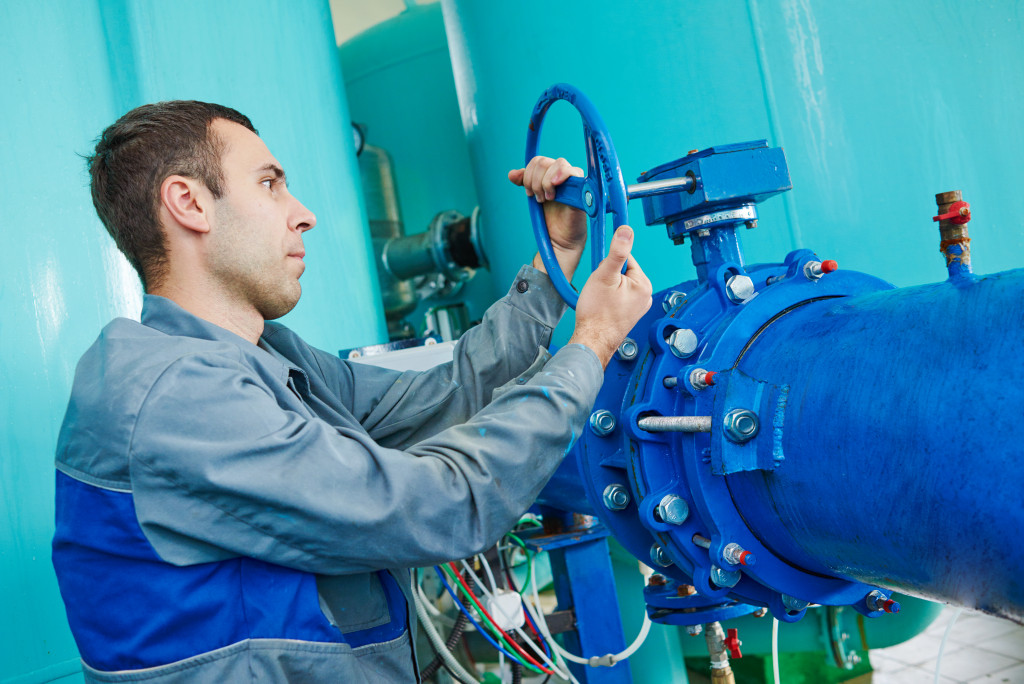- Valve operators are essential to industry operations, controlling the flow of liquids, gases, and steam.
- They require in-depth knowledge of flow measurement, pressure regulators, pipelines, and other equipment, as well as extensive training and certification.
- Essential tools for valve operators include diagnostic tools, torque wrenches, pipe wrenches, a handheld pump, and protective gear.
- Investing in the right tools and equipment will help ensure efficient operation and reduce maintenance costs.
Valve operators are essential to any industrial operation, regulating the flow of liquids, gases, and steam. Whether you work in refineries, water treatment plants, or food processing facilities, you need the right tools to ensure the proper functioning of control valves. This blog post will review the top tools every valve operator needs for efficient operation.
What is a Valve Operator
A valve operator plays a vital role in the oil and gas industry. In simple terms, they are responsible for the operation of valves used to control the flow of oil or gas in pipelines, plants, and refineries. They ensure the safe and efficient movement of hydrocarbons through pipelines, and their role is critical to the industry’s success.
Responsibilities

Valve Operators are responsible for maintaining and controlling the flow of oil or gas through pipelines, plants, and refineries. They perform various tasks related to the safe and efficient movement of hydrocarbons.
These tasks can range from opening and closing valves to monitoring gas flow, adjusting the pressure of pipelines, and conducting maintenance checks on equipment. The job can be physically challenging, as it may require working outdoors in remote locations, in all weather conditions.
Valve operators need to be well-versed in the operational procedures of pipelines and the associated equipment. They require in-depth knowledge of flow measurement, pressure regulators, channels, and other equipment. They also need to be aware of the potential hazards of working with hydrocarbons and know how to respond in an emergency. They require extensive training and certification to meet industry standards.
Tools for Valve Operators
A valve operator needs a range of tools to ensure the proper operation of valves. Here are some of the must-have tools for valve operators:
Valve diagnostic tools
Being a valve operator can be challenging, but having the right diagnostic tools at your fingertips can help ensure maximum efficiency and safety. Safety relief valve diagnostic tools are one of the best investments you can make as a valve operator. These robust tools track process conditions, monitor pressures and temperatures in critical components, diagnose performance issues and detect damage to internal components – ensuring efficient operation at all times.
No other tool is better suited for quickly diagnosing system failures and optimizing parameters to reduce downtime. Investing in safety relief valve diagnostic tools keeps you safe and can save your organization money in the long run by minimizing disruptions and boosting productivity.
Torque wrenches
A properly calibrated torque wrench is another essential tool for valve operators. It helps ensure technicians achieve the proper torque when tightening fasteners on control valves. Over-torqued pins can damage equipment, while under-torqued plugs can turn loose, causing leakages or other problems. Investing in the correct torque wrench will ensure valve operators’ accuracy and ultimately save maintenance costs in the long run.
Pipe wrenches

Pipe wrenches are commonly used in valve maintenance and are essential for loosening and tightening pipe connections. The right size of a pipe wrench to use is based on the pipe diameter. A technician using the wrong size wrench can cause damage to equipment or even injure themselves. So, having the correct size pipe wrench for the job is essential.
A handheld pump
Valve operators also require a hand-held pump to shut down control valves in an emergency. Handheld pumps help the valve operator control the flow of liquids or gases, preventing accidents like spills or overflows. It’s critical to ensure pump calibration and that they are in good working condition to avoid operational issues.
Protective gears
Protective gears such as gloves, goggles, and ear muffs help protect valve operators from potential injuries. Valve operators often work in hazardous environments and are exposed to risks, such as chemicals, noisy equipment, or hot temperatures. Investing in quality protective gear can help reduce side effects associated with exposure to hazards.
The Bottom Line
In conclusion, these are the top tools valve operators need to have for efficient operation. Having the right diagnostic tools, torque wrenches, pipe wrenches, handheld pumps, and protective gears will make the valve operator’s job much more accessible, ensuring smooth operation and reducing maintenance costs. Always invest in original equipment and gear, and implement preventive maintenance plans to ensure tools are in good working condition.




